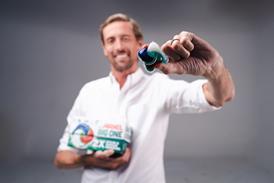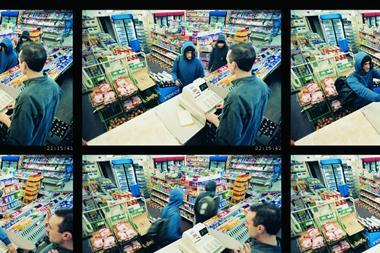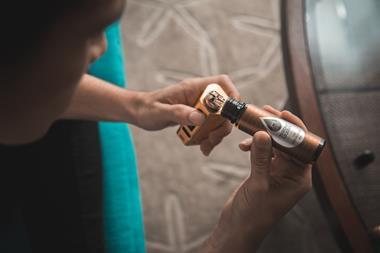How do you think the public perceives independents?
Atul Sodha: The public view independents as a mixed bunch. If your customers know you, you’re perceived well. If you’re new to the area, then you need to pull out all the stops. As a trade we’ve got a lot of work to do to increase the number of good retailers. You have to show professionalism in all areas. As independents we only have ourselves to answer to, so a retailer should know where their faults are.
Dee Sedani: We’re perceived positively because of our community spirit. When people run out of something they come to us and when they’re in the store they have a good chinwag.
Gordon Crump: A lot of people like independents and the idea of a family business, but they think they’re expensive. Arjan Mehr: I think people still have a lot of respect for independents because they’ve always operated in the community. People have got to know them and view them in a positive light.
Dave Newman: They vary so much that I don’t think you can generalise. Big city independents have a very different role to community stores based in smaller areas.
Do you think that most independents are worthy of respect?
AS: There are lots of badly run stores where I could think of immediate improvements, such as doing something simple like cleaning the windows.
DS: We are worthy of respect – we do a damn good job. The problem is that we care too much. For example, if a customer is 10p short, I’d let them pay it next time.
GC: People respect the way we stamp our personalities on our stores. I’ve been in the store for 40 years and know about half the customers by name.
AM: Most independents deserve respect, but a tiny minority take customers for granted in terms of hygiene, presentation and prices.
DN: The reality nowadays is that running an independent store is hard work. We deserve respect for the service we provide.
Is there enough collaboration between independents when it comes to sharing best practice?
AS: No, there’s not – the thing about best practice is that everyone can share their views. It’s good to get stuff off your chest.
DS: We don’t collaborate enough because we’re too busy to afford the time, but we need to. There’s an old Indian saying: ‘Don’t fight with a finger, fight with a fist’. C-stores are stronger working together.
GC: As members of Spar we are offered training if we need it. If you were not tied to a group then there would be a greater need for collaboration. All independents should be in symbol groups in order to survive.
AM: Independents are very private people. This has been the case for a very long time. They don’t think they need help to run their businesses.
DN: There isn’t enough. It’s instinctive to be secretive because you’re all in competition with each other. We tend not to share where we source things from. We’re all very protective.
Have you ever sought support or advice from other retailers? Where did you go and what did you gain from it?
AS: We had a cluster meeting at Londis where we looked at beverages and how we could improve sales. We review the results in a fortnight’s time, but I’ve already seen an uplift in sales simply by moving the premium coffee and green teas from the bottom of the fixture to eye-line level.
DS: We share ideas in our cluster groups. We meet every six weeks to discuss sales, new products and fresh ideas – you can bring anything to the table.
GC: We’re standalone, but under the Spar banner. We don’t have cluster meetings, but Spar negotiates on things like electricity bills and gives us advice on the best offers they can get. We’ve always gone to National Federation of Retail Newsagents’ meetings, but the retailers I’ve come into contact with there are all very negative.
AM: I talk to other retailers through the Londis cluster process. I chair meetings and, together with another chair, we cover about 150 stores across the region. I’ve learnt a lot from collaborating. I always make a point of visiting other retailers and sharing ideas, and I also get a lot of support from my suppliers, like Country Choice. I’ve picked up tips on how to control wastage in chilled goods, which is very important as they have a short shelf-life.
DN: When I first came into the business I did seek advice from other stores because I didn’t know anything. But now, most of the retailers I meet can’t really teach me that much.
Where do you draw the line between sharing best practice and giving away company secrets?
AS: Some people might think ‘If he’s got a store around the corner from me, do I want him knowing what I’m doing?’ But it’s short-sighted to think that if you share ideas with someone, then they’ll steal your trade. If you keep up your standards, then you won’t lose customers, so there’s nothing wrong with sharing. Also, if there are two good shops on the same parade then there will be more customers coming to the area, which is good news.
DS: A problem shared is a problem solved. Most retailers are heavily involved in the operational side of the business, but by meeting up, you can pass on your experience.
AM: I don’t think you need to draw a line. No one’s interested in your bank balance – they’re interested in best practice.
DN: If someone came to me and asked for advice because they were opening nearby, I’d be very cautious.
How could current methods of sharing best practice be improved?
AS: The thing about events such as the C-Store Champions outings is that everyone is given the chance to share their views, which is great. However, after these meetings there could be a follow-up to see what changes have actually been made.
DS: You can’t achieve collaboration just through a magazine, a phone call or even a website – you need to chat. I got more contacts at the C-Store Champions event than I would ever have got from just reading the magazine.
AM: For true independent stores, the only way to improve collaboration is by joining a symbol group. Within our own cluster group, I’m trying to do something different by getting people to be more interactive. Instead of just listening to the minutes of the meeting, from 8pm onwards people can have food and a beer. If you put people in a social situation they’re more likely to talk to each other.
DN: I’m not sure I want things to change. There’s a wealth of information out there through the internet and magazines, so people don’t really need to work together. And because independents are all so different, one plan for all just wouldn’t work.
























No comments yet